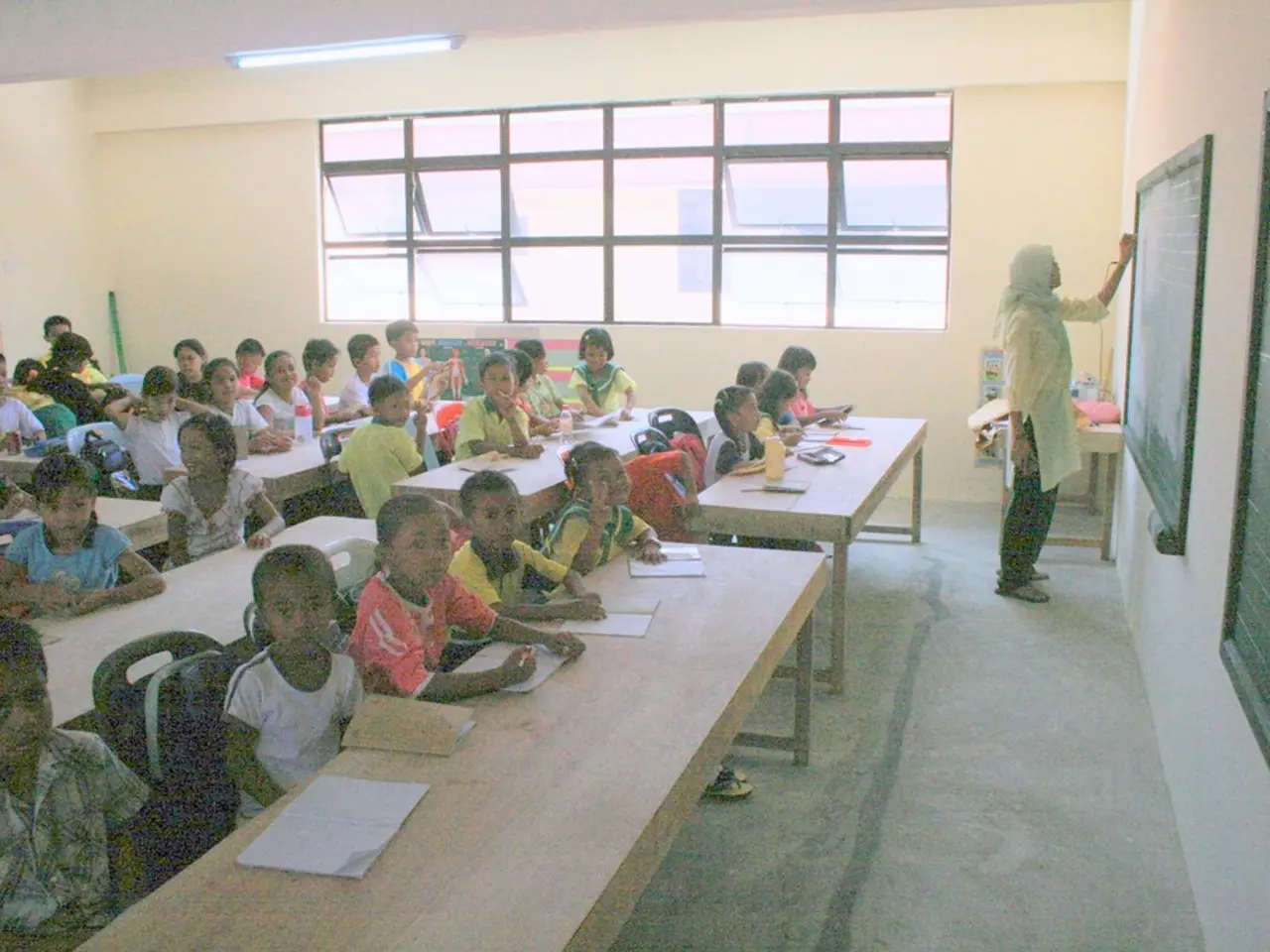Unmasking Unexposed Obstacles in Learning Processes
=================================================================================================
In the pursuit of a fair and inclusive educational environment, it's crucial to identify hidden learning issues that may impact a child's success in school and later in life. Recent studies have shown that genes play a significant role in academic achievement, with genes being as important as brain skills in determining success by the age of 16 [1].
Recognising signs and seeking professional help can make a substantial difference in a child's life. Common indicators of hidden learning challenges include academic difficulties, behavioural and emotional changes, and other observations.
Academic Difficulties
Struggling with math facts, recognising numbers, or understanding math concepts may indicate dyscalculia [1]. Difficulties with reading fluency, comprehension, spelling, and writing are also red flags. Children who have trouble following multi-step instructions or recalling information may also be showing signs of hidden learning issues [2].
Behavioral and Emotional Indicators
Frequent frustration, avoidance of school-related tasks, and signs of math or school anxiety are common in children with hidden learning challenges [1][4]. Changes in mood, such as irritability, withdrawal, or increased clinginess, may also be observed, particularly in younger children [4].
Other Observations
Persistent use of inefficient strategies, such as continued finger-counting beyond early grades, difficulty aligning numbers, or trouble with word problems in math, may indicate hidden learning difficulties [1]. Difficulties in real-life applications of learned academic concepts, poor working memory, slow processing speed, or difficulty in executive functioning tasks are other signs to watch for [2].
To effectively identify these challenges, a combination of strategies is recommended. Regular communication and monitoring between parents and teachers is essential to share observations about the child's academic and emotional performance [2][3]. If signs persist, a comprehensive learning disability evaluation conducted by experts should be sought [2].
Early intervention is vital to prevent the escalation of anxiety or learned helplessness and improve academic outcomes [3][4]. Schools should provide access to specialists (e.g., school psychologists, special educators) and appropriate interventions when challenges are detected [2][3].
By working together, parents, educators, and specialists can create a supportive and inclusive learning environment for children with hidden learning challenges. This can be achieved through inclusive learning accommodations, positive reinforcement, and self-advocacy skills.
Remember, parents play a crucial role in spotting hidden learning challenges in their children. If you suspect your child may be struggling, don't hesitate to seek help. Early intervention can make a significant difference in a child's life.
References:
[1] National Centre for Learning Disabilities (NCLD) (2025). Identifying Hidden Learning Challenges in School-Age Children. Retrieved from https://www.ncld.org/resources/identifying-hidden-learning-challenges-in-school-age-children
[2] Understood (2025). Signs of Learning and Thinking Differences in School-Age Children. Retrieved from https://www.understood.org/en/learning-and-thinking-differences/child-learning-disabilities/signs-of-learning-and-thinking-differences/signs-of-learning-and-thinking-differences-in-school-age-children
[3] Learning Disabilities Association of America (LDAA) (2025). Early Identification of Learning Disabilities. Retrieved from https://ldaamerica.org/early-identification-of-learning-disabilities/
[4] Child Mind Institute (2025). How to Spot Learning Disabilities in Children. Retrieved from https://childmind.org/article/how-to-spot-learning-disabilities-in-children/
All information synthesized from sources dated July 2025, including expert symptom lists, evaluation protocols, and guidance on emotional and academic indicators of learning difficulties [1][2][3][4]
- To ensure a positive learning environment for children with hidden learning challenges, it's important for parents to learn about behavior management strategies and Positive Parenting techniques.
- Encouraging the development of social skills is essential for the well-being of children with learning difficulties, as these skills can help them navigate social situations and build relationships.
- In addition to academic challenges, health-and-wellness and mental-health issues may also arise for children with hidden learning difficulties, so it's crucial for parents to be aware of these potential complications and seek professional help if necessary.
- By staying informed about the latest research in fields such as science and education, parents can make informed decisions about the best learning approaches for their children and work with educators to create effective interventions for managing any identified learning challenges.




